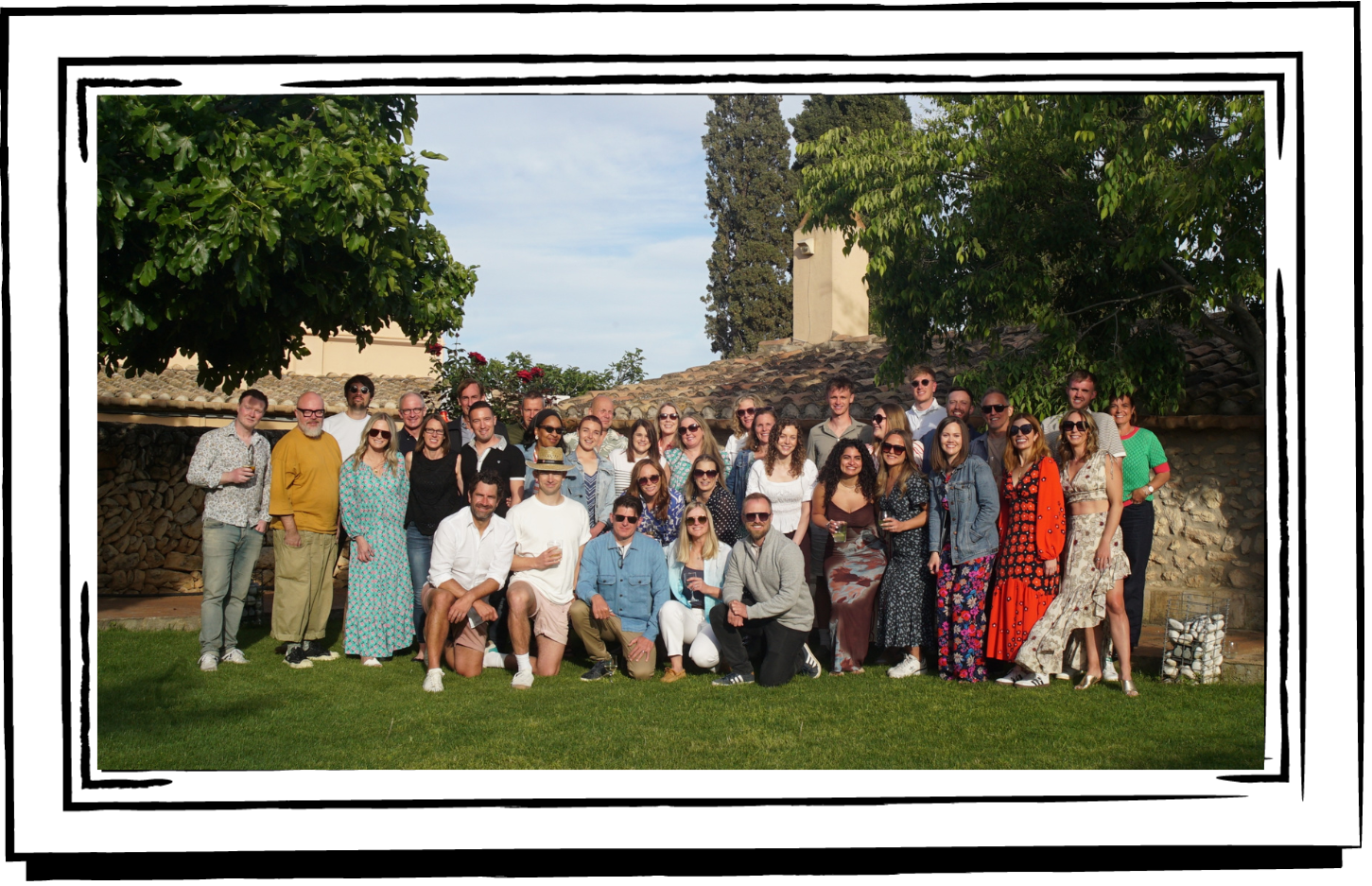The100: Cognitive debt, the burden of curiosity and cellar doors

Before we get into this issue of The100, I wanted to say a huge thank you to the whole Watch Me Think team.
All 3 of our offices (the UK, US and Australia) came together in Spain last week to spend some quality time together. I wrote more about it here, but all I can say is that it’s an absolute privilege to work with these amazing people.
I’ve never known a group who get on so well, enjoy each other’s company and always have each other’s backs. They’re ace. And they’re what makes Watch Me Think the company it is. Thank you to all of them.
If you’re in any doubt about what makes a team, ask to see the school sports day video from day 2 next time you bump into any of us.
“How much cognitive debt will this shortcut accrue?”
Apart from doing the most epic explainer videos, John Willshire has also written a superb piece on Cognitive Debt.
“Cognitive Debt is where you forgo the thinking in order just to get the answers, but have no real idea of why the answers are what they are […] are we incurring a debt by not doing the thinking in the present that we will need to demonstrate in the future?”
(A x O) + (M x C)
Proper interesting read in Only Dead Fish on Amazon’s Innovation formula. Unsurprisingly, given the opening section of this email, the part on culture really resonated:
- The working backwards methodology means that every product starts with a clearly defined customer need.
- Failure isn’t feared, it’s budgeted for.
- Amazon’s ‘Day 1’ philosophy fights entropy. The moment a company stops acting like a hungry startup, it starts dying.
Here’s to skinned knees and burnt cookies.
“An infection spreading through the entire data ecosystem”
Some not so good news from the research industry… Lenny Murphy wrote about the wake-up call the insights industry is receiving on data quality. For example, 15-30% of online survey data is a bit, ummm, not true. Pretty important.
The focus on quality is something I am massively passionate about, and I’m glad to read this from one of the industry experts. It needs to be read and understood by people across the insights world, and clients need to push their agencies all the time on quality.
As the saying goes, “You pays your money, you takes your choice”.
It’s the people (…again)
Daniel Susskind asked what will remain for humans to do? Thankfully, by his reckoning, there’ll be lots. This is due to 3 limits that AI has:
‘‘General equilibrium limits,’ involving tasks in which labor has the comparative advantage over machines (even if it does not have the absolute advantage); ‘preference limits,’ involving tasks where human beings might have a taste or preference for an un-automated process; and ‘moral limits,’ involving tasks with a normative character, where human beings believe they require a ‘human in the loop’ to exercise their moral judgment’
All that while Starbucks said cutting shop staff in favour of automation has failed.
Burdened by curiosity
Tom Goodwin outlined the 3 stages of AI adoption that he believes will occur. He also added:
“Show me someone who says AI is game over for a profession, and I’ll show you someone who knows nothing about that industry and isn’t burdened by curiosity. The more some people know about technology, the less they seem to understand reality.”
Burdened by curiosity. I like that. *updates LinkedIn bio*
And finally…
Here are some beautiful words that the English language has on offer. Do you have any you’d add to the list?
If you aren’t mesmerised by this (particularly how they finish) then I don’t know what else I can send you. Just wow.
And here’s 4 minutes of a baby elephant playing in a warm shower and having the time of her fuzzy-headed life. N’awwww.
Until next time,
Alistair

Comments
Comments are disabled for this post